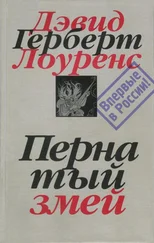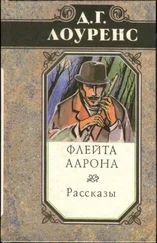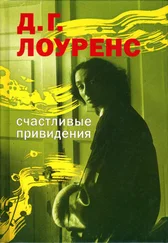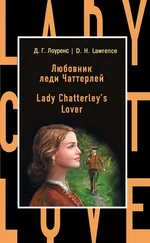Дэвид Лоуренс - Sons and Lovers
Здесь есть возможность читать онлайн «Дэвид Лоуренс - Sons and Lovers» весь текст электронной книги совершенно бесплатно (целиком полную версию без сокращений). В некоторых случаях можно слушать аудио, скачать через торрент в формате fb2 и присутствует краткое содержание. Жанр: Старинная литература, на английском языке. Описание произведения, (предисловие) а так же отзывы посетителей доступны на портале библиотеки ЛибКат.
- Название:Sons and Lovers
- Автор:
- Жанр:
- Год:неизвестен
- ISBN:нет данных
- Рейтинг книги:3 / 5. Голосов: 1
-
Избранное:Добавить в избранное
- Отзывы:
-
Ваша оценка:
- 60
- 1
- 2
- 3
- 4
- 5
Sons and Lovers: краткое содержание, описание и аннотация
Предлагаем к чтению аннотацию, описание, краткое содержание или предисловие (зависит от того, что написал сам автор книги «Sons and Lovers»). Если вы не нашли необходимую информацию о книге — напишите в комментариях, мы постараемся отыскать её.
Sons and Lovers — читать онлайн бесплатно полную книгу (весь текст) целиком
Ниже представлен текст книги, разбитый по страницам. Система сохранения места последней прочитанной страницы, позволяет с удобством читать онлайн бесплатно книгу «Sons and Lovers», без необходимости каждый раз заново искать на чём Вы остановились. Поставьте закладку, и сможете в любой момент перейти на страницу, на которой закончили чтение.
Интервал:
Закладка:
8 (p. 253) Margaret Bonford’s meeting : This is a fictionalized name, based on Margaret Bondfield (1873-1953), a trade-union leader and the first female member of the House of Commons and Britain’s first female cabinet minister. Bondfield advocated women’s suffrage and a number of other feminist causes and also promoted the rights of shop workers.
9 (p. 254) ‘Nevermore’: This is a reference to “The Raven” (1845), a poem by Edgar Allan Poe.
10 (p. 256) Deirdre or Iseult: Both are heroines in Irish legends and appear as well in similar medieval tales from throughout the British Isles and other parts of northern Europe. Deirdre is the ill-fated heroine of “The Sons of Usnach,” which is considered the greatest of early Irish love legends. Iseult appears in “Sir Tristrem,” in which the knight Tristrem falls in love with her.
11 (p. 276) Omar Khayyám: This Persian poet (circa 1123) became well known in England through Edward FitzGerald’s translation of his Rubáiyát, a collection of four-line poems. Of Khayyám, FitzGerald wrote, “[He] ... pretend[ed] sensual pleasure as the serious purpose of life.”
12 (p. 277) Miriam: In a letter dated early 1911 to Jessie Chambers, the woman upon whom Miriam is based, D. H. Lawrence writes, “... the best man in me belongs to you. One me is yours, a fine strong me.... I have great faith still that things will come right in the end.”
Chapter 10: Clara
1 (p. 280) “ a bit of a paintin’ as be knocked off in an hour or two!”: Though D. H. Lawrence was not successful with painting, as Paul is, he showed his father his first novel, The White Peacock, when it was printed in the winter of 1910.
“‘And what dun they gi’e thee for that, lad?’
‘Fifty pounds, father.’
‘Fifty pounds!’ He was dumbfounded, and looked at me with shrewd eyes, as if I were a swindler. ‘Fifty pounds! An’ tha’s niver done a day’s hard work in thy life.’”
2 (p. 287) sweated: The term refers to hard work. At the turn of the century, lace weaving, hosiery, and other British cottage industries notoriously underpaid workers, who were mostly women and children.
3 (p. 288) Juno: The queen of the Roman gods (known as Hera in Greek mythology) was the protector of women.
4 (p. 291) Lettres de mon Moulin: The popular collection of short stories by the Frenchman Alphonse Daudet was published in 1872. See also note 3 in chapter 9.
5 (p. 292) Penelope: In Homer’s Odyssey, Penelope is beset by suitors when her husband, Odysseus, fails to return home after the Trojan War. Ever faithful to her absent husband, Penelope promises she will choose a new mate by the time she finishes her weaving but unravels her work every evening so it is never completed.
6 (p. 296) Queen of Sheba: In the Bible, 1 Kings 10, the Queen of Sheba travels to Jerusalem and presents great riches to King Solomon in the name of the Lord.
7 (p. 297) Bulk only: The reference is to a poem, ”The Noble Nature,” by the English poet Ben Jonson (1572-1637): ”It is not growing like a tree / In bulk, doth make man better be.”
8 (p. 297) remorseful angels: In Christian theology, the angels who follow Lucifer out of Heaven and like him fall from grace spend eternity lamenting their distance from God. The poet John Milton (1608-1674) pursues this theme in his Paradise Lost.
9 (p. 298) snatching back ... with the right: The reference is to the Bible, Matthew 6:3, ”But when thou doest alms, let not thy left hand know what thy right hand doeth.”
Chapter 11: The Test on Miriam
1 (p. 307) Sir Thomas More: Paul wrongly remembers a statement by this English statesman and later a saint, who was executed when he refused to sanction the divorce of King Henry VIII from Queen Catherine (1478-1535). In Utopia (1516), More’s treatise on a peaceful society, he says that a woman shouldn’t marry before she is eighteen years old while a man should be at least twenty-two.
2 (p. 310) Gretchen way: Paul uses the term to let Miriam know that there is not much chance that he will impregnate her. Gretchen is a young woman in Goethe’s Faust, Part One, who Faust seduces and impregnates.
3 (p. 314) not-to-be: The reference is to Shakespeare’s Hamlet, act 3, scene 1.
Chapter 12: Passion
1 (p. 336) Kirke White: Henry Kirke White (1785-1806) was from Nottingham and wrote ”Clifton Grove,” published when he was in his late teens, to describe his boyhood pleasures in the same grove through which Paul and Clara now walk. The young poet died at the age of twenty-one.
2 (p. 342) c owering out of Paradise : Paul is referring to the way that Eve must have felt when, in the Bible, Genesis 3, she and Adam must leave Eden after she tempts him with the forbidden apple.
3 (p. 349) a pillar of cloud by day and a pillar offire by night : In the Bible, Exodus 13:21-22, a divine beacon shines before the chosen people to show the way as they flee Egypt.
4 (p. 359) Sarah Bernhardt: The French actress (1844-1923) known as ”The Divine Sarah” toured in England, mainland Europe, and America. One of her most famous roles was in La Dame aux Camélias, which she performed in Nottingham in 1908.
5 (p. 365) pierrot : In the Italian pantomime drama known as commedia dell‘arte, Pierrot was originally a sort of clown lover. However, through many interpretations and variations of his character, Pierrot evolved into an imaginative artist who conceals his true self behind a comic mask.
Chapter 13: Baxter Dawes
1 (p. 372) The aristocracy ... they want war : D. H. Lawrence predicts the coming of World War I.
2 (p. 378) “‘The man in ... quiver’ ”: Paul is reciting humorous verse based on an ode by Horace (65-8 B.C.).
3 (p. 378) ”Put Me among the Girls”: This popular comic song was written and composed by Clarence W. Murphy and Dan Lipton. The full verse is, ”Put me amongst the girls ... those with the curly curls, / They’ll enjoy themselves, and so will I, / If you put me amongst the girls.”
4 (p. 393) Orpen: Sir William Orpen (1878-1931), a portrait painter, became the official artist to the British government during World War I.
Chapter 14: The Release
1 (p. 413) ” Say ‘ Caw !’... Jim Crow”: D. H. Lawrence puns on the name Dawes, which suggests jackdaw, a type of bird, which he expands to “crow.” Jim Crow was a character that the American minstrel performer Dan Rice made immensely popular in the 1830s.
2 (p. 417) ” Did you sleep, my dear?” he asked: In a letter to the poet Rachel Annand Taylor dated December 1910, D. H. Lawrence writes, ”I have been at home now ten days. My mother is very near the end. Today I have been to Leicester. I did not get home till half past nine. Then I ran upstairs. Oh she was very bad. The pains had been again.
‘Oh my dear,’ I said, ‘is it the pains?’
‘Not pain now—Oh the weariness,’ she moaned, so that I could hardly hear her. I wish she could die tonight.”
3 (p. 419) veils that were ripping: According to the Bible, Luke 23:45, at the moment of Jesus’ death the curtain of the temple was torn in two.
4 (p. 439) water: With edema, a disease that is usually caused by malfunctions of the heart or the kidneys, large amounts of fluid deposit in the body.
Inspired by Sons and Lovers
Читать дальшеИнтервал:
Закладка:
Похожие книги на «Sons and Lovers»
Представляем Вашему вниманию похожие книги на «Sons and Lovers» списком для выбора. Мы отобрали схожую по названию и смыслу литературу в надежде предоставить читателям больше вариантов отыскать новые, интересные, ещё непрочитанные произведения.
Обсуждение, отзывы о книге «Sons and Lovers» и просто собственные мнения читателей. Оставьте ваши комментарии, напишите, что Вы думаете о произведении, его смысле или главных героях. Укажите что конкретно понравилось, а что нет, и почему Вы так считаете.









